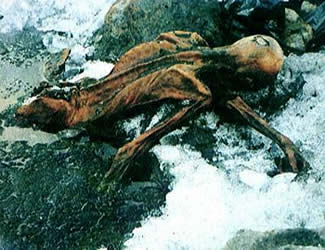Although there is evidence to suggest that planet earth has been gradually warming up and cooling down for thousands of years, the fact that earth is now once again warming due to climate change (whether natural or caused by man) is affecting our glaciers. Due to the nature of glaciers (i.e. being made of snow and ice) they are rather sensitive to climate change (both warming and cooling) with a decrease in temperature by one degree encouraging them to grow and an increase in temperature by one degree resulting in them retreating.
The fact that glaciers are melting (and have been doing so throughout Europe for the past hundred years) can have a serious effect on our environment, with many of the smaller ones now vanishing completely and the larger ones releasing huge quantities (millions of tonnes) of freshwater onto our planet.
When glaciers release this freshwater the vast majority of it ends up in our oceans leading both to sea level rises (as shall be discussed in the next post) and a lack of freshwater. This lack of freshwater can be an issue for locals who rely on the glacier for their water supply as well as the lack of a glacier being an issue in itself to nations who use it for tourism or hydro-electric power.
One of the largest issues however of the release of such a large volume of freshwater into our oceans is the fact that it may affect our global weather patterns due to them being controlled by the ocean currents that move warm water from the equator to the poles and vice versa. The problem arises due to the fact that fresh water is less dense than salt water and as such if a lot of it is released then it may affect the density of the salt water. This will affect weather patterns due to the fact that warm water (as stated previously) is carried to the poles, becomes cool, decreases in density and then sinks before travelling back to the equator as cold water. Freshwater however may change this density, therefore not allowing the cold water to sink.
Nevertheless, there have been certain advantages of glacial melting, one of which being the five thousand year old body found in 1991, that had been trapped in glacial ice. This provided knowledge for both archaeologists and geographers who were then more able to determine the age of the glacier.
Oetzi the iceman. Found in the Otztal Alps


No comments:
Post a Comment